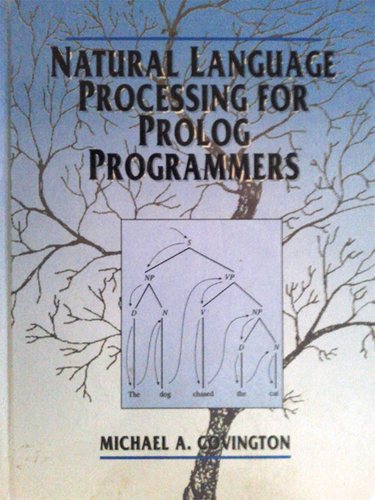
Natural Language Processing for Prolog Programmers
by Michael A. Covington
Publisher: Prentice-Hall 1994
ISBN/ASIN: 0136292135
ISBN-13: 9780136292135
Number of pages: 361
Description:
Designed to bridge the gap for those who know Prolog but have little or no background in linguistics, this book concentrates on turning theories into practical techniques. Coverage includes template and keyword systems, definite clause grammars (DCGs), English syntax, unification-based grammar, parsing algorithms, semantics, and morphology.
Download or read it online for free here:
Download link
(32MB, PDF)
Similar books
 Notes on Computational Linguistics
Notes on Computational Linguisticsby Edward Stabler - UCLA
What kind of computational device could use a system like a human language? This text explores the computational properties of devices that could compute morphological and syntactic analyses, and recognize semantic relations among sentences.
(16523 views)
 A Maximum Entropy Approach to Natural Language Processing
A Maximum Entropy Approach to Natural Language Processingby A. L. Berger, S. A. Della Pietra, V. J. Della Pietra - Association for Computational Linguistics
The authors describe a method for statistical modeling based on maximum entropy. They present a maximum-likelihood approach for automatically constructing maximum entropy models and describe how to implement this approach efficiently.
(10450 views)
 Natural Language Processing for the Working Programmer
Natural Language Processing for the Working Programmerby Daniël de Kok, Harm Brouwer
We will go into many of the techniques that so-called computational linguists use to analyze the structure of human language, and transform it into a form that computers work with. We chose Haskell as the main programming language for this book.
(16641 views)
 Natural Language Processing Succinctly
Natural Language Processing Succinctlyby Joseph D. Booth - Syncfusion, Inc.
Author will guide readers through designing a simple system that can interpret and provide reasonable responses to written English text. With this foundation, readers will be prepared to tackle the greater challenges of natural language development.
(6112 views)